Pastor James Preus
Trinity Lutheran Church
January 29, 2023
When we consider the transfiguration of our Lord Jesus Christ, that magnificent moment when His divine nature was not hidden and His three closest disciples witnessed Him in all His splendor as He spoke with Moses and Elijah, and God the Father declared Him to be His beloved Son, we can learn three main lessons.
The first lesson is taught by St. Peter, one of the eye witnesses of the transfiguration. St. Peter teaches us that the Bible is the very Word of God. He says, “And we have something more sure, the prophetic word, to which you will do well to pay attention to as to a lamp shining in a dark place, until the day dawns and the morning star rises in your hearts.” (2 Peter 1:19) This should remind you of Psalm 119:105, where David says to God, “Your word is a lamp to my feet and a light to my path.” The Holy Scriptures are the Bible. The Bible is the Word of God. It doesn’t simply contain the Word of God. It is not some men’s opinion about God’s Word. St. Peter tells us that the Holy Scriptures are God’s Word. What the Bible says is what God says.
Yet, how does St. Peter conclude that the Holy Scriptures are the Word of God from the Transfiguration of Christ? When Jesus was transfigured, Moses and Elijah spoke to Him. Moses is the author of the first five books of the Bible: Genesis, Exodus, Leviticus, Numbers, and Deuteronomy, also known as the Torah or Pentateuch. Elijah represents the other prophets, who wrote the rest of the Old Testament. Peter, James, and John are the three Apostles, who witnessed the transfiguration. They represent the authors of the New Testament. These two and three witnesses from the Old and New Testaments represent the entire Bible, which bears witness of Christ. This is why St. Paul writes in Ephesians 2 that the household of God is built on the foundation of the apostles and prophets, Christ Jesus Himself being the cornerstone, because the prophetic and apostolic books of the Bible are God’s Word.
The Holy Scriptures are not God’s Word simply because they were written by Prophets and Apostles. No human being can make his own writing God’s Word. The Holy Scriptures are God’s Word, because God caused them to be written. St. Peter continues, “Knowing this first of all, that no prophecy of Scripture comes from someone’s own interpretation. For no prophecy was ever produced by the will of man, but men spoke from God as they were carried along by the Holy Spirit.” Moses spoke God’s Word. So did Elijah. And so did the Apostles. Their writings are not their own; they are the words of our God!
God the Father commanded Peter, James, and John to listen to Jesus. That command is directed at us as well. Yet, we can’t listen to Jesus’ voice as these Apostles did as they walked down the mountain. So, we listen to Jesus by paying attention to Holy Scripture like a light shining in our path, until Christ appears in His glory. Jesus Himself says, “You search the Scriptures because you think that in them you have eternal life; and it is they that bear witness about me.” (John 5:39)
This means that pastors are not at liberty to preach whatever they want, but are bound to proclaim what Scripture teaches. And Christians are not at liberty to ignore God’s Word and pick and choose what they want to believe from it. Your opinions about God do not make the truth. God’s Word is truth. Holy Scripture tells us who our God is and what He says. Therefore, we should pay attention to it.
The second lesson we learn from the transfiguration is that Jesus is true God and true man. The description of Jesus’ transfiguration certainly sounds divine! His face shone like the sun! His clothes became white as light! Yet, if anyone is still left in doubt, we have the authoritative voice of God the Father declare, “This is my beloved Son, with whom I am well pleased; listen to Him.” There can be no doubt in anyone’s mind. Jesus is God, the eternal Son of God the Father.
Yet, both before and after the transfiguration, Jesus speaks to His disciples about His humiliating suffering, death, and resurrection. Now, this is strange. On the mountain we see Jesus’ shining gloriously with divine light. His divinity is proclaimed by God the Father Himself. Yet, when Jesus speaks to His disciples, He tells them of His suffering and death.
And here is an important lesson for us all. Jesus did not change when He went up on that mountain. He didn’t become God’s Son on that mountain, nor did He begin to please God there or cease to be God or to please His Father when He left. Rather, on that mountain Jesus revealed to His disciples what had been hidden in His humiliation.
This means that when Jesus is spit upon by scoffers, blindfolded, punched, and blasphemed; when He is scourged until the skin rips off His back; when the crown of thorns is pressed into His scalp, so that the blood runs into His eyes; when the nails pierce through His hands and feet, and He hangs dying on the cross; when He fulfills what His disciples recoiled at, Jesus remained the same Son of God as He was on that holy mountain. Everything Jesus does from the womb to the tomb and up to the Father’s right hand, He does as both God and man!
What’s more, the words the Father declared about Jesus remained true. “This is my beloved Son, with whom I am well pleased!” How is it that God is well pleased with Jesus, yet Jesus suffers such an ignoble death? If God is well please with His Son, why does His Son suffer and die? He doesn’t suffer and die for His own sake! He doesn’t suffer and die for His own sins! He suffers and dies for the sins of another. “Although He had done no violence and there was no deceit in His mouth, it was the will of the LORD to crush Him” (Isaiah 53:9-10) “The LORD has laid on Him the iniquity of us all.” (Isaiah 53:6)
This gives us great confidence in our salvation for several reasons. First, someone else has been punished in our place for our sins, and God has accepted this payment to our credit. Jesus did not die for His own sins. The Father is pleased with Him. Yet, He carries the sins of the whole world and dies for them. Second, this Someone who is punished in our place is God! This means that His death is a sufficient price to pay for the sins of the whole world.
For this reason, our Lutheran Confessions write in the Apology of the Augsburg Confession, article IV, “In the first place, it is certain that we receive remission of sins, neither through our love nor for the sake of our love, but for Christ’s sake, by faith alone. Faith alone, which looks upon the promise, and knows that for this reason it must be regarded as certain that God forgives, because Christ has not died in vain, etc., overcome the terrors of sin and death. If anyone doubts whether sins are remitted him, he dishonors Christ, since he judges that his sin is greater or more efficacious than the death and promise of Christ; although Paul says in Rom. 5:20: Where sin abounded, grace did much more abound.”
That is to say that Christ’s mercy is more powerful, richer, and stronger than our sin! To claim that Christ’s death has not taken away your sins or that you must earn God’s grace, is to say that your sin is greater than God Himself, which is blasphemy. Jesus is God. Everything He does, He does as God and man. He is God on the cross as He pays for your sins. To doubt the forgiveness Jesus declares to you is to blaspheme Christ and deny that He is God.
Finally, we learn from Jesus’ transfiguration that we cannot see God’s glory without the cross. Peter blabbered to Jesus about building tents. Peter didn’t even know what he was saying. All we can tell is that he wanted to hold onto the moment. But that wasn’t the point of this vision. Jesus must leave the mountain of transfiguration and go Mount Calvary to die His humiliating death for our sins. Jesus knows the effect this will have on His disciples. Jesus also said to His disciples, “If anyone would come after me, let him deny himself and take up his cross and follow me.” (Matthew 16:24) Peter and the other apostles would follow in Jesus’ bloody train. They needed encouragement. They needed a boost. And so do we.
Jesus is transfigured to show us who He really is as He suffers on the cross and His form becomes so marred beyond human semblance (Isaiah 52:14). Yet, we cannot reach that glory unless Jesus goes to the cross. If Jesus does not go to the cross to die for our sins, then we are forever like the children of Israel, hiding from Moses’ shining face. But since Jesus has gone to the cross, we have certainty of our salvation.
Yet, we don’t look at Jesus’ suffering in ignorance. We don’t even look at our own suffering in ignorance. It is as St. Paul writes, “For I consider that the sufferings of this present time are not worth comparing with the glory that is to be revealed to us.” In Christ’s transfiguration, we see the truth that is hidden by the outer shell of this world. As Jesus bore the form of our sinful flesh, while remaining sinless Himself, yet shed that form forever and now lives in His transfigured form forever, so we have the hope that we will share in His glory. As Jesus took on our sin and died for it, so He gives us His glory, that we may live in it forever!
We’re approaching the Lenten season, as we focus on the suffering and death of Christ and the mortification of our own flesh, that is, as we focus on repentance. Transfiguration gives us a view of reality. Christ’s suffering is over. He has done away with our sins. And our journey’s end is not in the grave, but with Christ in splendor. This is the true message of Holy Scripture, which is God’s very Word. And God does not lie. Amen.
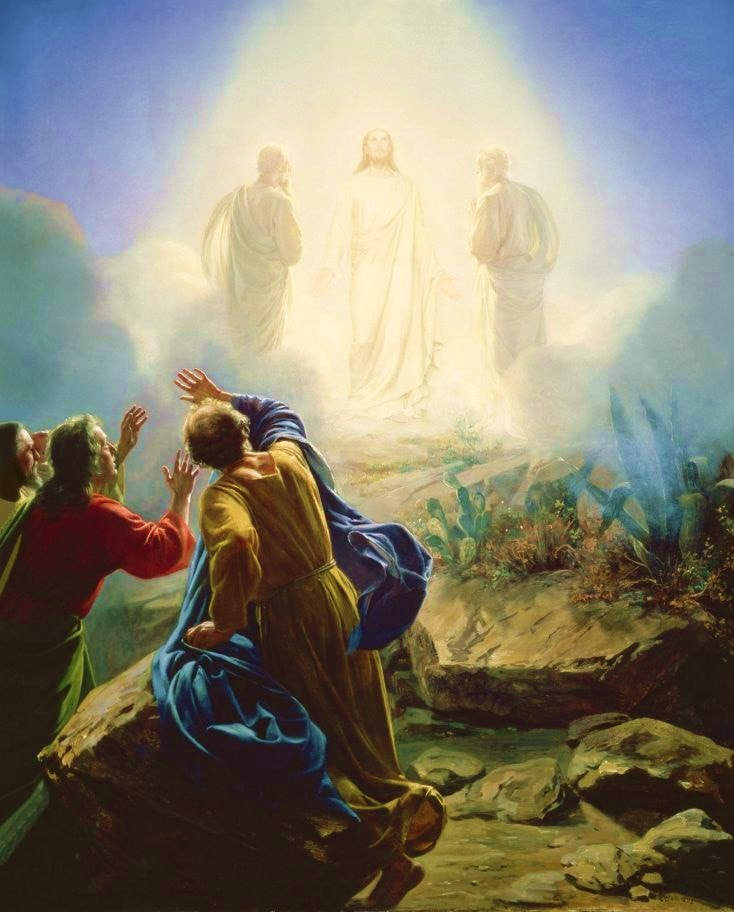
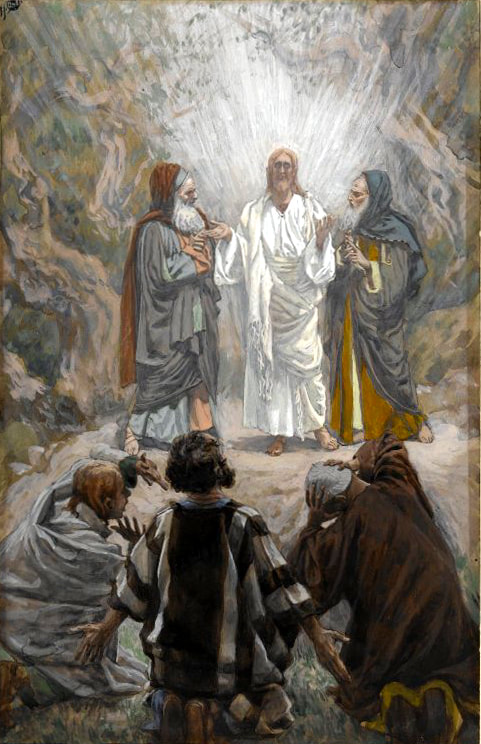
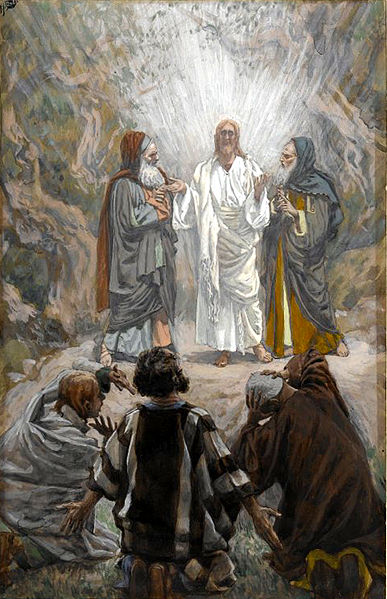
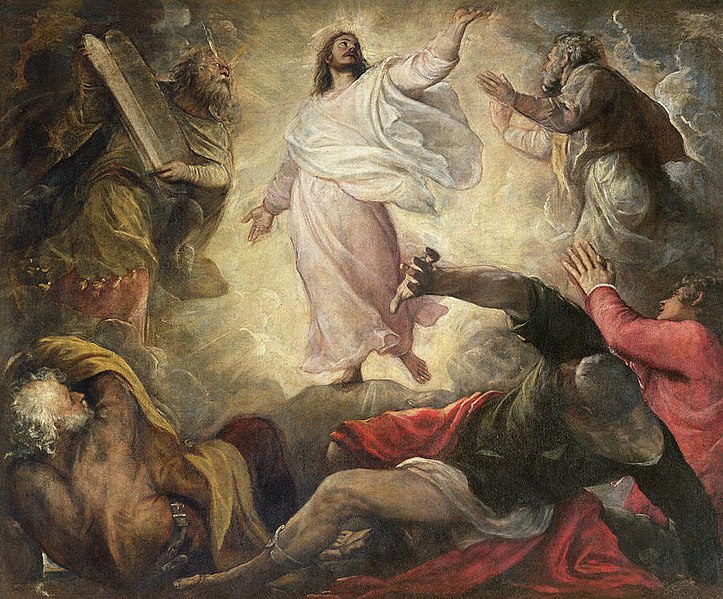
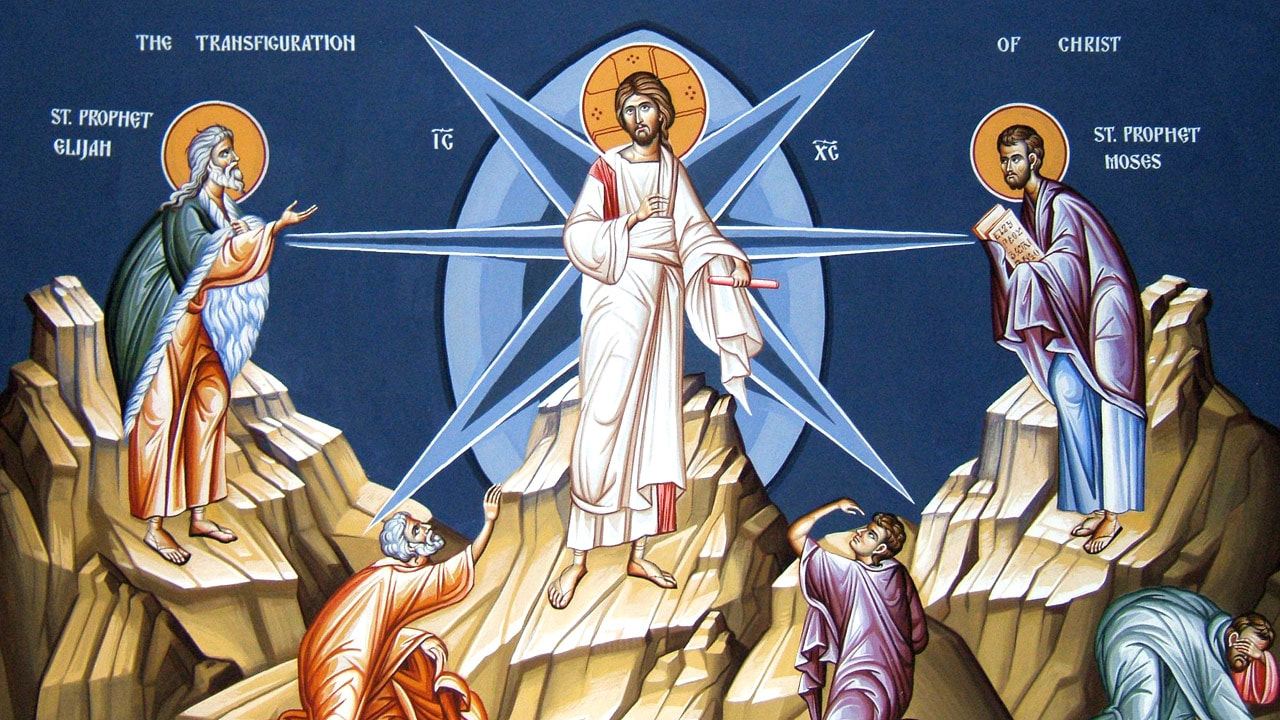
 RSS Feed
RSS Feed